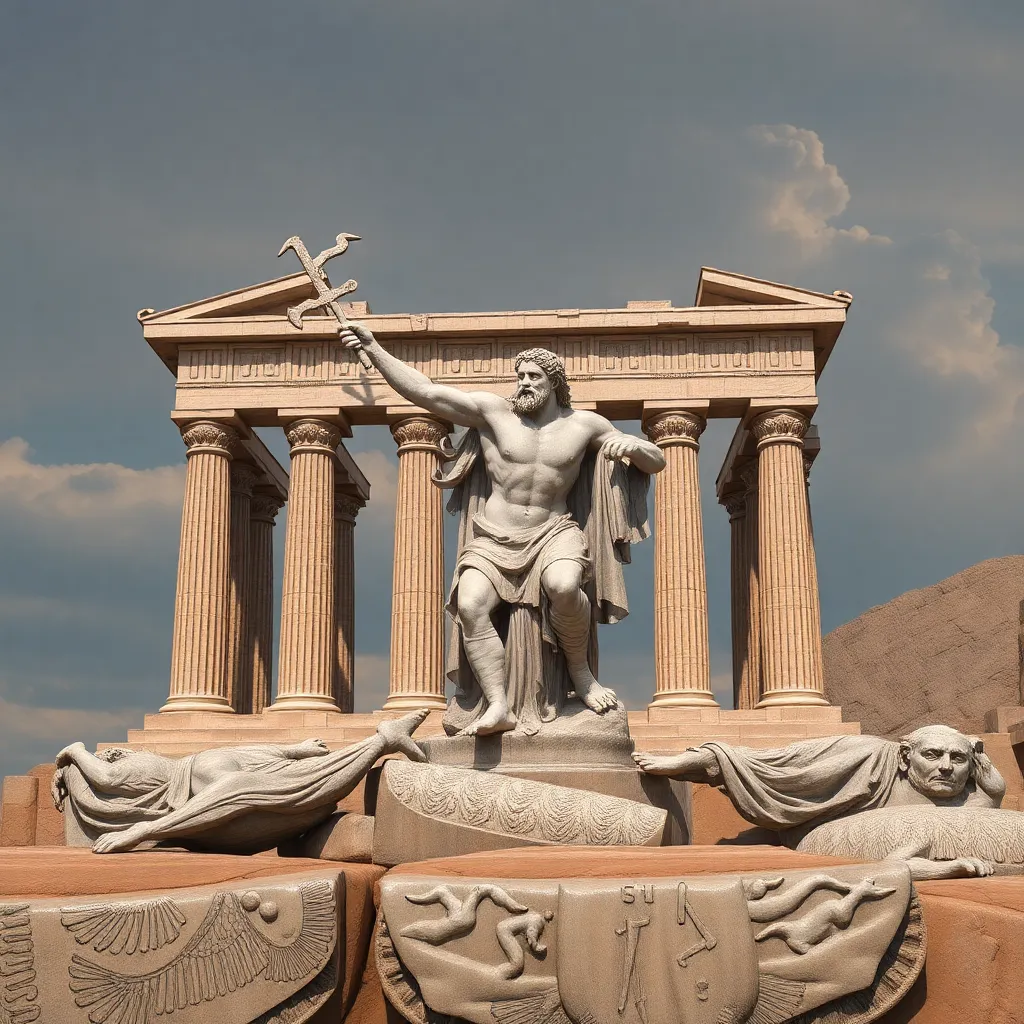The Impact of Theseus on Ancient Greek Religion
I. Introduction
Theseus is one of the most significant figures in Greek mythology, renowned for his adventures and heroic feats. As the son of Aegeus, king of Athens, Theseus embodies the ideals of bravery, intelligence, and civic responsibility. His stories have played a crucial role in the cultural and religious landscape of ancient Greece, shaping the identity of Athenians and influencing religious practices.
This article aims to explore the multifaceted influence of Theseus on ancient Greek religion, including his mythological origins, cultural significance, religious worship, and lasting legacy.
II. The Mythological Origins of Theseus
Theseus’s origins are steeped in myth. Born to Aegeus, who left him a sword and sandals under a rock to claim his heritage, Theseus grew up in Troezen before embarking on a journey to Athens. His early life is marked by a series of challenges that he overcame, establishing his reputation as a hero.
Among the key myths associated with Theseus are:
- The Minotaur: Perhaps the most famous tale, where Theseus volunteers to enter the Labyrinth and slay the Minotaur, a creature that is half-man, half-bull.
- The Labyrinth: The story of how Theseus navigated the intricate maze designed by Daedalus using a ball of thread given to him by Ariadne.
- The Abduction of Hippolyta: Theseus’s conquest of the Amazon queen, highlighting his role as a warrior and lover.
These myths not only illustrate his strength and bravery but also symbolize the struggle against chaos and the establishment of order, a common theme in Greek mythology.
III. Theseus as a Cultural Hero
Theseus is integral to Athenian identity, often considered a symbol of the city itself. His adventures reflect the values and ideals of Athenian society, making him a cultural hero.
His connection to the founding of Athens is profound. According to myth, Theseus unified the scattered communities of Attica, establishing Athens as a political entity. This act of unification positioned Theseus as a founding figure, fostering a sense of civic pride among the Athenians.
Moreover, Theseus served as a unifying figure for the various Greek city-states, representing the idea that strength and unity could overcome division. This is evident in the way his stories were celebrated across regions, linking disparate communities through shared mythology.
IV. Religious Significance of Theseus
The worship of Theseus in ancient Greece was marked by various temples and shrines dedicated to him. One of the most notable is the Temple of Theseus in Athens, which served as a focal point for his veneration.
Festivals and rituals associated with Theseus further highlight his religious significance. The Panathenaea, one of the most important Athenian festivals, celebrated the goddess Athena but also honored Theseus as a protector of the city. Ceremonies often included:
- Processions and sacrifices in his name.
- Athletic contests that celebrated his heroic feats.
Theseus was also perceived as a demigod, which elevated his status among the pantheon of Greek deities. His heroic lineage and legendary exploits made him a figure of reverence, linking him with the divine in the minds of worshippers.
V. Theseus and the Concept of Hero Cults
Hero cults were a prominent aspect of ancient Greek religion, where deceased heroes were worshipped as demigods. Theseus exemplifies this phenomenon, as he was venerated in various locales, particularly in Athens.
His cult had a significant impact on local and regional religious practices. Theseus’s role as a hero who overcame great challenges resonated with the populace, leading to the establishment of rituals and offerings intended to gain his favor and protection.
Common practices in Theseus’s cult included:
- Offerings at altars dedicated to him, often involving food and libations.
- Annual festivals commemorating his legendary quests, reinforcing community bonds.
VI. Influence on Later Religious Thought
The impact of Theseus extended beyond ancient Greece, influencing Hellenistic and Roman religious beliefs. His stories were adapted and integrated into the broader tapestry of mythology, with Theseus often depicted as a model for virtue and heroism.
Later literature and mythology reinterpreted Theseus’s character, sometimes portraying him in more complex lights, revealing the multifaceted nature of heroism. His legacy was examined through various lenses, including moral and ethical dilemmas, making him a subject of philosophical discussion.
This reinterpretation demonstrated the theme of religious syncretism, where Theseus’s character merged with other cultural and religious narratives, showcasing the fluidity of myth in response to changing societal values.
VII. The Legacy of Theseus in Modern Interpretations
In contemporary literature and art, Theseus remains a figure of fascination. His tales are retold in various forms, from books to films, continuing to inspire audiences with themes of bravery, sacrifice, and the pursuit of justice.
The relevance of Theseus’s story in modern religious discussions lies in its exploration of moral and philosophical themes. Issues of heroism, leadership, and the complexities of human nature resonate with current societal challenges.
Theseus’s enduring legacy is a testament to the power of myth in shaping cultural narratives and moral frameworks, providing a source of inspiration for generations.
VIII. Conclusion
Theseus’s impact on ancient Greek religion is profound, shaping religious practices, cultural identity, and the collective consciousness of the Greeks. His stories served not only as entertainment but also as moral lessons and cultural touchstones that defined Athenian values.
Reflecting on the enduring legacy of Theseus, it is clear that myths like his provide crucial insights into the beliefs and practices of ancient societies. They offer a lens through which we can understand the complexities of human experience, the ideals of heroism, and the search for meaning in the chaos of existence.
Ultimately, Theseus stands as a pivotal figure in Greek mythology, embodying the virtues of strength, wisdom, and unity, and illustrating how myths can shape and reflect the spiritual lives of people throughout history.




